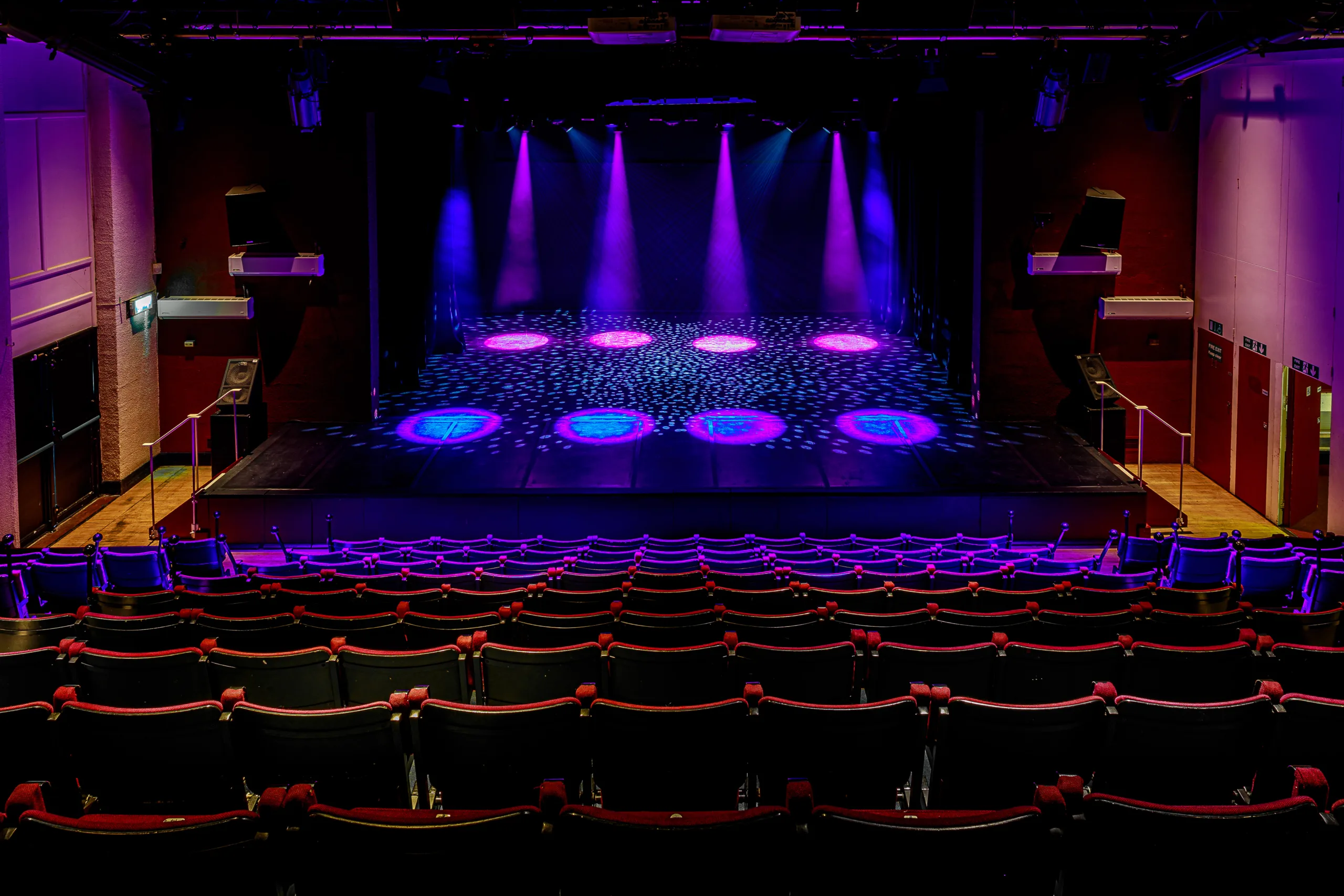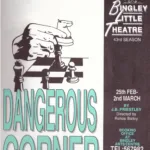Season 43 Play 5 – Dangerous Corner by J.B. Priesley
Directed by
Cast
Miss Mockridge – Vicki Vigrass
Betty Whitehouse – Samantha Cross
Olwen Peel – Patricia M Henny
Charles Stanton – Leslie Poynter
Gordon Whitehouse – Antony Howley
Robert Caplan – Edward Cowen
Synopsis
A welcome revival of one of Bradford’s own playwright’s “time” plays, set among the upper-middle classes between the wars. A family dinner-party is haunted by the recurring memory of brother Martin’s suicide. What is the truth of the events surrounding this tragedy? And what happens next? Is there a second suicide? Or can time’s “dangerous corner” be safely bypassed?
Directors Notes
John Boynton Priestley was born in Bradford in 1894. His father was a teacher but young Priestley did not follow him into the profession; he left school early and worked in a wool merchants’ office. While working there he began to write and publish reviews, essays, stories and novels and this eventually led him, after the First World War, to become a journalist in London. Priestley said journalism gave him his “familiar flat, thin idiom”. That may be so but his style is also remarkably lucid and to the point.
Not only was “Dangerous Corner” Priestley’s first play it was also the first of his “Time” plays. The other two – “Time and the Conways” and “I Have Been Here Before” were written specifically to illustrate the chronological theses of Dunne and Ouspensky. But to me
“Dangerous Corner” simply illustrates that there are moments in time when we either embrace or avoid disaster. Not that these theories matter in the least to the people attending the three plays. They are all compelling and interesting work from a clever dramatist. They were all, in their time immensly popular. Though not with the critics.
We must also be grateful that Priestley was writing plays of ideas and technical experimentation at a time when the West End theatre was full of vapid, drawing room comedies. In a sense he kept theatre alive and well when all else was frivolity and commercialism.


